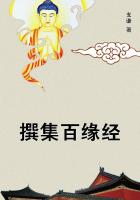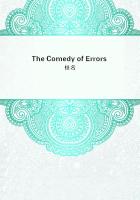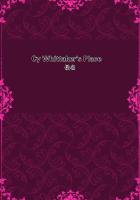The business which the South London Working Men's College has undertaken is a great work; indeed, I might say, that Education, with which that college proposes to grapple, is the greatest work of all those which lie ready to a man's hand just at present.
And, at length, this fact is becoming generally recognised. You cannot go anywhere without hearing a buzz of more or less confused and contradictory talk on this subject--nor can you fail to notice that, in one point at any rate, there is a very decided advance upon like discussions in former days. Nobody outside the agricultural interest now dares to say that education is a bad thing. If any representative of the once large and powerful party, which, in former days, proclaimed this opinion, still exists in the semi-fossil state, he keeps his thoughts to himself. In fact, there is a chorus of voices, almost distressing in their harmony, raised in favour of the doctrine that education is the great panacea for human troubles, and that, if the country is not shortly to go to the dogs, everybody must be educated.
The politicians tell us, "You must educate the masses because they are going to be masters." The clergy join in the cry for education, for they affirm that the people are drifting away from church and chapel into the broadest infidelity. The manufacturers and the capitalists swell the chorus lustily. They declare that ignorance makes bad workmen; that England will soon be unable to turn out cotton goods, or steam engines, cheaper than other people;and then, Ichabod! Ichabod![50] the glory will be departed from us.
And a few voices are lifted up in favour of the doctrine that the masses should be educated because they are men and women with unlimited capacities of being, doing, and suffering, and that it is as true now, as it ever was, that the people perish for lack of knowledge.
These members of the minority, with whom I confess I have a good deal of sympathy, are doubtful whether any of the other reasons urged in favour of the education of the people are of much value--whether, indeed, some of them are based upon either wise or noble grounds of action. They question if it be wise to tell people that you will do for them, out of fear of their power, what you have left undone, so long as your only motive was compassion for their weakness and their sorrows. And, if ignorance of everything which is needful a ruler should know is likely to do so much harm in the governing classes of the future, why is it, they ask reasonably enough, that such ignorance in the governing classes of the past has not been viewed with equal horror?
Compare the average artisan and the average country squire, and it may be doubted if you will find a pin to choose between the two in point of ignorance, class feeling, or prejudice. It is true that the ignorance is of a different sort--that the class feeling is in favour of a different class and that the prejudice has a distinct savour of wrong-headedness in each case--but it is questionable if the one is either a bit better, or a bit worse, than the other.
The old protectionist theory is the doctrine of trades unions as applied by the squires, and the modern trades unionism is the doctrine of the squires applied by the artisans. Why should we be worse off under one regime than under the other?
Again, this sceptical minority asks the clergy to think whether it is really want of education which keeps the masses away from their ministrations--whether the most completely educated men are not as open to reproach on this score as the workmen; and whether, perchance, this may not indicate that it is not education which lies at the bottom of the matter?
Once more, these people, whom there is no pleasing, venture to doubt whether the glory which rests upon being able to undersell all the rest of the world, is a very safe kind of glory--whether we may not purchase it too dear; especially if we allow education, which ought to be directed to the making of men, to be diverted into a process of manufacturing human tools, wonderfully adroit in the exercise of some technical industry, but good for nothing else.
And, finally, these people inquire whether it is the masses alone who need a reformed and improved education. They ask whether the richest of our public schools might not well be made to supply knowledge, as well as gentlemanly habits, a strong class feeling, and eminent proficiency in cricket. They seem to think that the noble foundations of our old universities are hardly fulfilling their functions in their present posture of half-clerical seminaries, half racecourses, where men are trained to win a senior wranglership,[51] or a double-first,[52] as horses are trained to win a cup, with as little reference to the needs of after-life in the case of a man as in that of the racer. And, while as zealous for education as the rest, they affirm that, if the education of the richer classes were such as to fit them to be the leaders and the governors of the poorer; and, if the education of the poorer classes were such as to enable them to appreciate really wise guidance and good governance, the politicians need not fear mob-law, nor the clergy lament their want of flocks, nor the capitalists prognosticate the annihilation of the prosperity of the country.
Such is the diversity of opinion upon the why and the wherefore of education. And my hearers will be prepared to expect that the practical recommendations which are put forward are not less discordant. There is a loud cry for compulsory education. We English, in spite of constant experience to the contrary, preserve a touching faith in the efficacy of acts of Parliament; and Ibelieve we should have compulsory education in the courses of next session, if there were the least probability that half a dozen leading statesmen of different parties would agree what that education should be.
Some hold that education without theology is worse than none.














